
All categories
Featured selections
Trade Assurance
Buyer Central
Help Center
Get the app
Become a supplier

(943 products available)






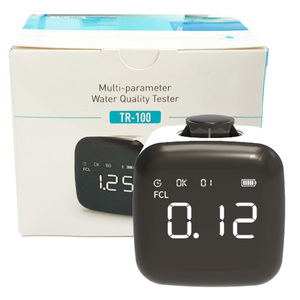
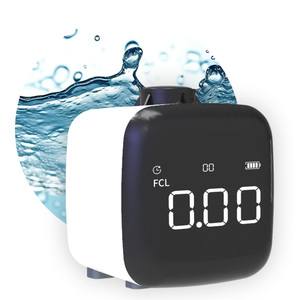
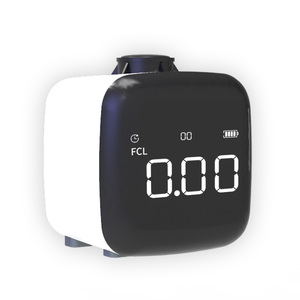
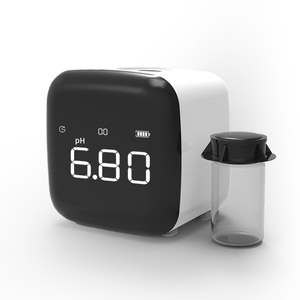
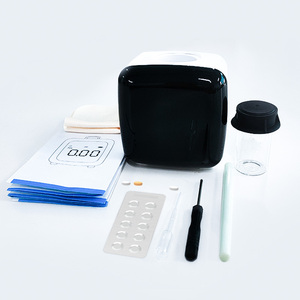


































There are many electrolyte test kits available, with distinct functions and features based on the specific needs of the industry.
Blood Electrolyte Test Kit
This kit measures key electrolytes such as sodium, potassium, chloride, and calcium in a blood sample. The kits typically used in hospitals and clinics are designed for quick and easy use. Some versions of these kits include portable machines that deliver instant results through a computer or mobile device. Other versions are meant to be more stable, and the results may be needed for long-term storage or complex analysis.
Urine Electrolyte Test Kit
These kits are designed to measure the levels of electrolytes, especially sodium and potassium, in urine. Urine tests help understand the body's electrolyte balance, which can track disease progress or nutritional status. Most kits work well in outpatient and lab settings. They may also be installed on computers to analyze and record results fast. Traditional electrolyte urine test kits are usually calorimetric kits, where urine samples are mixed with reagents and analyzed visually or using simple handheld devices.
Dialysate Electrolyte Test Kit
This kit is mainly used in dialysis centres to check the electrolyte concentrations of dialysate solutions. Maintaining the right electrolyte balance is crucial in dialysis as it helps reduce patient complications. These test kits come in handy when measuring electrolytes like sodium, potassium, bicarbonate, and calcium in dialysate. Some dialysate electrolyte test kits can be connected to computers and have real-time testing capability to enable immediate intervention in an electrolyte imbalance.
Saliva Electrolyte Test Kit
The saliva electrolyte test kits are portable and, more often than not, meant for home use. These kits measure the concentration of key electrolytes like sodium, chloride, and potassium in an individual's saliva. These are mainly used in wellness and fitness applications. The users seek quick results to establish for themselves the electrolyte status of their bodies. Saliva testing is non-invasive and convenient, and this makes it popular for personal use, although it may not be as precise as blood or urine tests.
Ion-selective Electrodes (ISE) Kits
For labs needing precise and flexible testing, Ion-selective Electrodes Kits make it possible to measure different electrolytes. These electrodes are sensitive and reusable, thus giving an accurate and efficient way of testing. In ISE kits, individual electrodes are selected to measure different ions like sodium, potassium, calcium, and chloride. It can be coupled with other lab equipment, like computers and data loggers, to help in the study.
When selecting electrolyte test kits for sale, wholesalers should consider several factors that influence the purchasing decisions of businesses.
Target market
Wholesalers should defer to the testing needs of their customers when choosing electrolyte test kits. Medical facilities like hospitals and clinics mainly need blood electrolyte test kits for precise and fast results. Dialysis centres will need dialysate electrolyte testing kits. Health and fitness centres and home users usually prefer easy-to-use saliva electrolyte test kits.
Testing method
There are several electrolyte testing methods, each with advantages. Wholesalers should consider the preferences of their customers practically. Electrolyte blood test kits that work with electronic machines often give fast and accurate results. Kits using chemical reagents to test urine are probably more low-cost but may not offer results as precise or as fast as the machines. Ion-selective electrode kits offer flexibility in lab settings due to their precision and multiple testing capabilities.
Test Kit Features
Wholesalers should consider the elements that improve the usability and accuracy of the electrolyte test kits. For instance, those blood test kits that are linked to personal computers often have data storage and analysis capabilities. Urine test kits that use colour comparison can be enhanced with apps that turn colour into numerical results. ISE kits are versatile due to their sensitivity and precision. Saliva test kits are usually simple and portable yet provide instant results.
Costs
Wholesalers should consider the prices of the electrolyte test kits and how these affect potential sales. Those test kits that have simple components or require easy maintenance are likely to appeal to customers in search of low ongoing costs. Saliva test kits usually cost less to buy and use compared to blood or urine kits because they are non-invasive. However, those ISE kits, while precise, may be expensive to buy due to the electrodes and other lab equipment needed for usability.
Quality
Electrolyte test kit quality will determine their reliability and performance. Wholesalers should look for kits from reputable manufacturers with the ISO and CE quality mark. They should also stock electrolyte test kits that have customer satisfaction feedback that can withstand the rigors of frequent commercial use.
Electrolyte test kits help businesses operate more effectively, enter new markets, and improve their profitability.
Increased Diagnostic Capability
Healthcare facilities obtain extra value by installing electrolyte test kits into their operations. The facilities are then able to test electrolytes in blood, urine, and saliva, improving their diagnostic capability. This extra value is principally driven by the speed and ease with which the kits are able to deliver results. By performing these tests in-house, healthcare facilities eliminate the need to send samples to outside labs, which reduces turnaround time. This may result in better patient management and satisfaction.
Streamlined Operations
Dialysis centres can improve their operational efficiency by utilising electrolyte test kits. The centres use the kits to test electrolyte levels in dialysate, ensuring proper electrolyte balance during dialysis procedures. This testing system reduces the need to manually calculate or guess dialysate concentrations, which helps centres streamline their processes. This may translate into faster treatments, fewer errors, and improved patient outcomes. Also, the centres become able to operate more effectively and handle more patients without increasing costs.
New Revenue Streams
Enterprises like gyms and wellness centres can attract customers by offering electrolyte testing services. These services may test levels in blood, urine, or saliva, giving a comprehensive view of the body's electrolyte status. This attracts more customers interested in tracking their electrolyte balance for health reasons or fitness activities. Also, the centres create extra value by producing fast and reliable results using the kits so that customers do not have to find outside labs to do the tests.
Market Expansion
Diagnostic labs can expand their market reach by offering a wider range of electrolyte tests. They can use blood, urine, and saliva electrolyte test kits, which would help the labs serve more customers and enter new markets. The labs differentiate themselves from competitors by offering these services and attracting customers needing more specialized testing. They also improve their test volume and become more profitable as they provide comprehensive testing.
Cost Savings
Agriculture and food processing companies can save money by testing their products' electrolyte levels with routine testing. It helps companies detect imbalances early on, averting potential problems like lower crop yields or poor-quality food products. Catching such issues early saves huge costs on processing expenses or dealing with illnesses. The companies also save time and money by using the test kits, avoiding costly delays or interruptions in production while ensuring compliance with health regulations.
Electrolyte test kits have different specifications based on the kind of test they perform and the media they analyze.
Blood Electrolyte Test Kit Specification
Mobile and machine-connected blood electrolyte test kits handle and analyze blood samples within the healthcare facility. These may be small and portable units, linked to mobile phones to provide fast, reliable, and easy results. Larger models are robust, powerful work units that connect to computers for detailed data analysis and storage. These kits usually have several blood test cartridges incorporated so that health facilities are able to test many patients at a time.
Urine Electrolyte Test Kits Specification
Electrolyte urine test kits analyze urine samples to give the concentration of electrolytes such as sodium and potassium. These kits can be chemical reagents that users mix with urine samples, giving color-changed results. Some may need simple devices to read results, while others are more complex and require the attached Ion-selective Equipment. Facilities processing large volumes of samples, like outpatient labs, often use automatic or semi-automated kits, enabling efficient and accurate high-throughput testing.
Dialysate Electrolyte Test Kit Specification
These kits are primarily designed to test electrolyte concentrations in dialysate solutions used in kidney dialysis. They generally measure key electrolytes like sodium, potassium, bicarbonate, and calcium. Most kits give measurements quickly, and many centres prefer automatic versions that connect to computers for real-time monitoring and data recording. Several kits incorporate multiple test cartridges, providing dialysis centres the capacity to perform several tests concurrently.
Saliva Electrolyte Test Kits Specification
The saliva electrolyte test kits are portable, simple devices that analyze saliva samples to measure electrolyte concentrations. Most kits work without power and use test strips that give color results. Some models may connect to mobile phones or small machines to give precise numerical results. These kits are non-invasive, easy to use, and designed for personal use or wellness centres, allowing fast testing with minimal prep work.
Ion-selective Electrodes (ISE) Kits Specification
These kits measure the concentration of various electrolytes in a media using ion-selective electrodes. These kits are useful for labs because ISEs are sensitive, precise, and reusable. The versatility makes them ideal for dynamic lab environments needing multiple electrolyte tests. While the initial cost may be high, the reusable nature of the electrodes offers long-term savings to businesses over time.
A1: Most electrolyte test kits for commercial use contain cartridges, reagents, or reaction elements, testing pads, and data output systems. Sometimes, there are test kits that do not have any of these components, as in the case of the ISE kits, where the user must purchase the electrodes separately.
A2: There are many factors that wholesalers should keep in mind when purchasing electrolyte test kits for sale. They should consider the preferred testing methods, electrolyte concentrations, and kinds of media their customers are testing. They should also look into the kit diagnostics capabilities, operating costs, precision, and turnaround time.
A3: Healthcare facilities like hospitals and clinics rely on the point-of-care blood and urine test kits. Dialysis centers use specialties and test kits to monitor the electrolyte balance of patients during dialysis. Diagnostic labs use them to provide a comprehensive range of electrolyte testing services. Wellness centres and gyms use saliva testing kits to offer health monitoring services. Finally, agriculture and food processing companies test the electrolyte levels of their products using these kits.
A4: It is important to store the test kit components in proper conditions to keep them from becoming damaged. This may mean refrigerating components like reagents that are perishable and keeping other parts like cartridges and strips in a dry, cool area. Users should also be continually cleaning the kits to get rid of any residual blood, urine, or saliva samples that may have been left behind. Checkups should be performed often to discover problems early and ensure the kits function correctly and provide precise results when needed.
A5: By providing fast results, the test kits help patients feel good about their condition fast, which improves customer experiences. Businesses offer the kits to screen and test patients rapidly, giving them a competitive advantage. The enhanced diagnostic capability and quicker results mean healthcare facilities can provide better patient care, which leads to more customers happy with the services they receive.